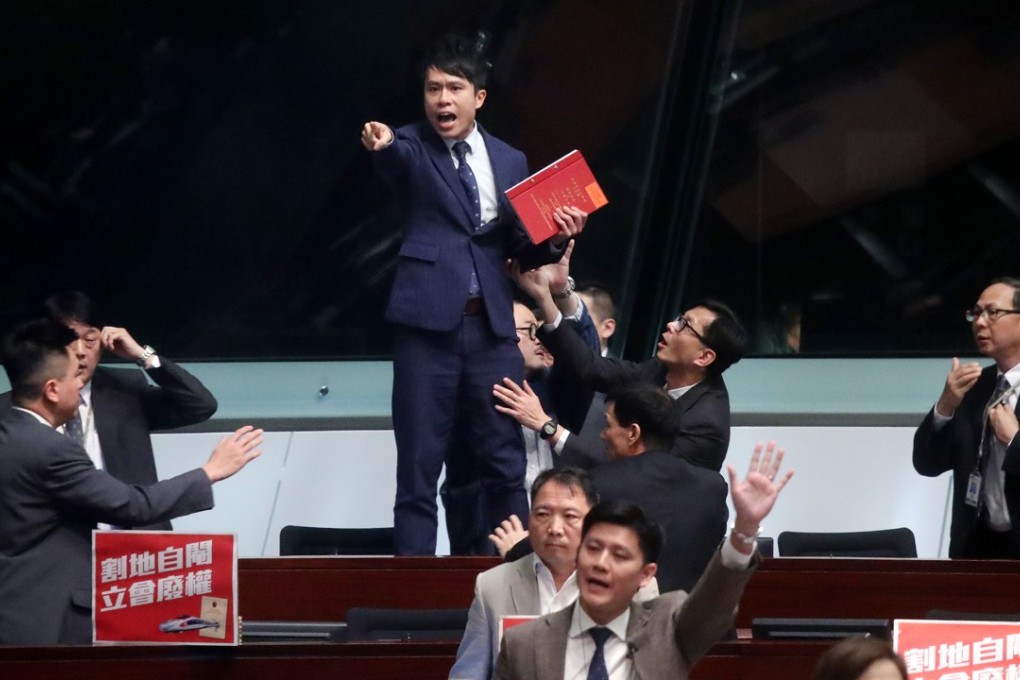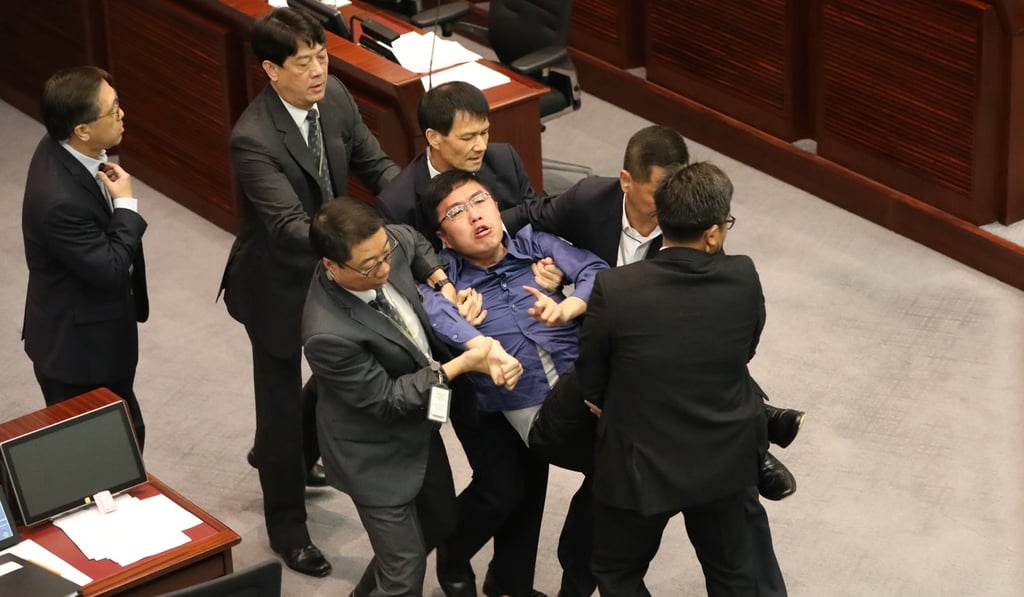Proposal for suspension and fines targets Hong Kong lawmakers who continue to misbehave
Continued misbehaviour of pro-democracy politicians in Legislative Council leads to proposal for the addition of fines and suspensions to punishments house rules committee can impose

A new rule could give the Legislative Council the power to suspend or fine members who misbehave during meetings.
The suggestion, raised during a meeting of the Committee on Rules of Procedure on Monday, is a direct response to the aggressive and occasionally outlandish protest tactics pro-democracy lawmakers have employed during Legco sessions.
An increasingly vocal minority, those in opposition have resorted to shouting, standing on desks, and tearing up order papers during sessions where they disagree with the administration’s position.

However, committee chairman Paul Tse Wai-chun said the process was at an early stage and no formal proposal on handling disorderly conduct had been made.
Tse said the 12-member committee would consult all lawmakers and study the prescribed procedures – known as standing orders – from parliaments in Britain, Australia, Taiwan and four other jurisdictions during the summer recess from mid-July to September.